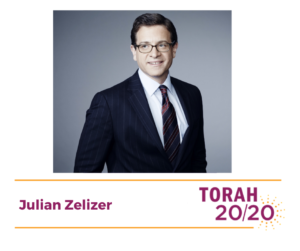A d’var Torah for Yom HaShoah.
In many respects, World War II seemed like a triumph of democracy. When the Allies defeated the Axis powers, the world celebrated that democratic nations had been victorious against fascism. On May 8, 1945, Victory Day, Americans danced in the streets and threw confetti from the rooftops to celebrate the moment.
But for the Jewish Diaspora, the underlying horror of this period was overwhelming. In the span of just a few years, Nazi Germany had committed a ruthless campaign of genocide, wiping out six million Jews.
For many American Jews, the lesson of the Holocaust was that without a strong commitment to the preservation of social justice, we are left with democracies that are frail at their foundation. The protection of human rights was not an option but a necessity. This realization spawned an entire generation of progressive Jewish activists who took from the devastation of the Holocaust the need to fight for human rights within the nation and around the globe. The Chancellor of the Jewish Theological Seminary, Louis Finkelstein, had immediately reimagined the mission of his institution in the aftermath of the horror. In August 1945, Finkelstein wrote to the faculty, “The Jewish world has after all suffered during the past five years the gravest catastrophe in all its history. We find ourselves responsible for the training of rabbis and teachers whose influence will be felt in every part of the world because American Jewry is the only really influential Jewish community in the diaspora surviving the war.” In a press release, he proclaimed: “There can be no religious piety without social justice; no lasting economic prosperity without the sense for the spiritual; no political stability without compliance with moral principles.”
Many of the leading activists in the campaign to free Soviet Jewry were motivated by the failure of Americans — Jews and gentiles — to save refugees in the 1930s. A young group of professional Jews in Cleveland, Ohio were inspired to form the Cleveland Committee on Soviet Anti-Semitism based on their studies of the American response to the Nazis. In a meeting in the graduate students’ lounge of Philosophy Hall in Columbia University in 1964, Jacob Birnbaum, the founder of the College Student’s Struggle for Soviet Jewry, told those who came to the meeting: “Just as we, as human beings and as Jews, are conscious of the wrongs suffered by the Negro and we fight for his betterment so must we come to feel in ourselves the silent, strangulated pain of so many of our Russian brethren… We, who condemn silence and inaction during the Nazi Holocaust, dare we keep silent now?”
The tragedy of the Holocaust informed civil rights activism. During the March on Washington, the German-American Rabbi Joachim Prinz began his speech, which came right before Martin Luther King Jr’s, by stating: “When I was the rabbi of the Jewish community in Berlin under the Hitler regime, I learned many things. The most important thing that I learned under those most tragic circumstances was that bigotry and hatred are not the most urgent problem. The most urgent, the most disgraceful, the most shameful and the most tragic problem is silence.”
Sign up to receive Torah 20/20 in your inbox each week.
Although Rabbi Abraham Joshua Heschel didn’t speak much about the Holocaust, the experience was never far from his mind at the height of his civil rights and anti-war activism during the 1960s. He saw his home of Warsaw devastated by the conflict and at the personal level lost his mother and three sisters. On November 14, 1965, Heschel delivered a public lecture at the Union Theological Seminary, where he spent a year as visiting faculty, entitled “No Religion is an Island.” He began by telling the audience about the precariousness of his own origins: “My destination was New York; it would have been Auschwitz or Treblinka. I am a brand plucked from the fire, in which my people was burned to death…” Heschel said, “The supreme issue today is not the Halakhah for the Jew or the Church for the Christian — but the premise underlying both religions, namely, whether there is a pathos, a divine reality concerned with the destiny of man which mysteriously impinges upon history.” During an interview at the University of Notre Dame, Heschel said, “I am really a person who is in anguish. I can’t forget what I have seen and been through. Auschwitz and Hiroshima never leave my mind. Nothing can be the same after that.”
 The Holocaust exposed the limits of modern democracies. Social justice is essential for any non-authoritarian political system to endure. This is an insight that the Nazi genocide seared into Jewish memory. Judaism is a living testament to this truth and a lesson that we can’t forget as nations around the globe determine how to rebuild from the wreckage of the coronavirus crisis.
The Holocaust exposed the limits of modern democracies. Social justice is essential for any non-authoritarian political system to endure. This is an insight that the Nazi genocide seared into Jewish memory. Judaism is a living testament to this truth and a lesson that we can’t forget as nations around the globe determine how to rebuild from the wreckage of the coronavirus crisis.
Julian E. Zelizer is the Malcolm Stevenson Forbes, Class of 1941 Professor of History and Public Affairs at Princeton University Book. This fall, Penguin Press will publish his new book, Burning Down the House: Newt Gingrich, The Fall of a Speaker, and the Rise of the New Republican Party. He is writing a biography of Abraham Joshua Heschel for Yale University Press’s Jewish Lives Series.
